Will Ferrell and Harper Steele take a soul-searching road trip across the US.
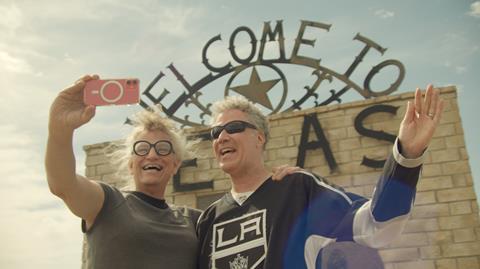
There is a moment in Will & Harper where Will Ferrell asks his friend Harper Steele, “How are your boobs?” It is not styled as a joke that one of Ferrell’s characters might say in Elf or Old School – he is genuinely curious about his friend’s new life after she has transitioned to being a trans woman.
“Harper says multiple times in the film, ‘You are my friend. I invite any friend of mine to ask me these questions,’” explains Will & Harper director Josh Greenbaum. “That was something that was really important that we would like to underline it is not appropriate to ask a stranger.”
These two are clearly not strangers: Steele was a writer on Saturday Night Live back in 1995 when Ferrell joined the cast. Later, Steele was creative director at Ferrell’s company Funny or Die and co-wrote the actor’s projects including Casa De Mi Padre and Eurovision Song Contest: The Story Of Fire Saga. They have spent three decades as friends, hanging out in dive bars and taking road trips.
So when Steele sent Ferrell a carefully worded and characteristically funny letter (“Instead of being an asshole, I’ll be a bitch”), telling Ferrell that she was now out as a woman, the recipient thought a road trip might be the logical next step – this time with cameras in tow to document their discussions.
“I thought of it as a film and a road trip together as a way to potentially help my friend feel more comfortable,” explains Ferrell, speaking to Screen International at Bafta’s London HQ alongside Steele and Greenbaum. “I knew this could just be a lot of fun.”
Steele took a bit of convincing to make the film, partly because she has stayed behind the camera all her professional life. “I have been uncomfortable on film,” reflects Steele. “You could point to a reason why that is because I was uncomfortable with myself. There was something challenging about this level of publicity, but I want people to see me, because I am out. I don’t need to hide from that anymore.”
Ferrell says he wanted to be respectful but did not want to censor himself. “I truly viewed it as an exercise,” he says. “That was one of the questions I wrote in my notebook, ‘What was it like to get boobs? What was the feeling like?’ I didn’t know. I wanted people to see that in an honest way. I was figuring out the right vernacular and how to posit things in a correct way. Harper would see me struggling and she would say, ‘Just spit it out! Let’s go, I’m your friend!’”
Their 17-day journey took them from New York to Los Angeles, crossing the US heartland and visiting diners and bars, Walmart parking lots, sporting events, rodeos and scenic spots including the Grand Canyon. Greenbaum came on board having directed Barb And Star Go To Vista Del Mar, which Ferrell produced, and canine comedy Strays, in which Ferrell voiced one of the main characters.
The tech had to be inventive – working with director of photography Zoë White, Greenbaum had a primary setup that “suction-cupped and ratchet-strapped-down two digital cameras on the hood of Harper’s car. I love the two-shot through the windshield. You can watch Will, you can look over at Harper and then check out Will’s reaction to what Harper said.”
Greenbaum sometimes added a camera operator inside the car with Ferrell and Steele, but only once the duo had a few days of conversation under their belts.
They also shot exteriors of the car driving along without its camera mounts, and there was some Steadicam work on locations that was “very influenced by the look of Nomadland”, adds Greenbaum. He kept the crew fairly lean: two camera operators, a sound mixer, two PAs who were also camera assistants/focus pullers/grips and helped get release forms signed, plus a security person and the producers.
Security was important for the whole team. Being a fly on the wall is not easy with one of the world’s most recognisable stars in tow. “How can we make sure Will’s presence and fame isn’t influencing?” ponders Greenbaum. “That is a hard thing to do. We would never tell anyone we were coming if we didn’t have to. We certainly would never tell people we were coming with Will Ferrell.”
“Once we explained what we were doing, and who Harper was, that fame obsession usually dissipated,” chips in Ferrell. “It became about Harper and this subject.”
Open book
The film shows the range of reactions a trans person can encounter in the US – from supportive messages and respectful curiosity to nasty social media comments after the pair visit a Texas steakhouse, which opened up tearful reflections from Ferrell.
Steele provided archival photos as needed, as well as her old journals, which she narrates to Ferrell in the car. “The journals are opening up talking points about areas I wanted to discuss with Will,” she explains. “I would do that with friends: ‘Here’s something from my journal I wrote – what do you think?’ And it just opens up the conversation.”
An RV following Harper’s car had a team member downloading the footage and sending all those 250 hours to editor Monique Zavistovski, who was cutting all along. Greenbaum would check in with her from the road: “What did we miss? What do we need?”
A few months after the trip ended, they had their first assembly, which was five hours long. “Part of my favourite thing about making documentaries is they’re written afterwards,” says Greenbaum, whose previous non-fiction work includes The Short Game (2013). “I’m open to the possibility that it’s something totally different [than imagined], and we’re going to go on the cliff together and start rolling.”
The situation is not played for laughs in Will & Harper but there are many funny moments – such as Ferrell donning a Sherlock Holmes costume for a night out. The director explains he focused only on the dramatic arcs after realising he could “strip the comedy out because they’re both so funny all the time. It was in the DNA of the project.”
Ferrell and Steele spoke so freely because they knew and trusted Greenbaum. “For it to work, we had to set this feeling of family and safety for us to feel comfortable enough to go to these places emotionally,” explains Ferrell.
“I don’t remember having one conversation that I thought Josh couldn’t use,” adds Steele. “When I watched the film, it feels like a good representation of how we talked. I think Josh does something with the tone that was quite loving and surprising.”
Will & Harper earned four nominations at the Critics’ Choice Documentary Awards, sharing the best feature prize with Super/Man: The Christopher Reeve Story. The film premiered at Sundance in January and was acquired there by Netflix, which launched it on the platform globally in September following pit stops at Telluride and Toronto.
Ferrell is happy it can reach a wide audience on a global platform: “Our audience is both the 40-year-old former frat guys who grew up watching me, and the queer community who will now buy Harper free drinks at any bar.”
Those audiences might see this trio reunite for more collaborations in the future, even if the road trips will be private. “I’m always writing with my number-one actor, my number-six director in mind,” quips Steele.



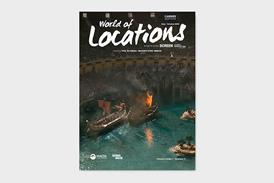
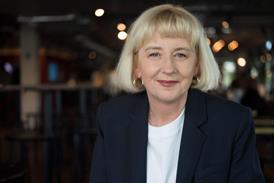
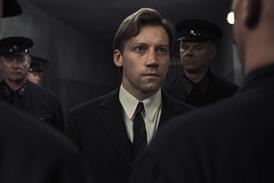
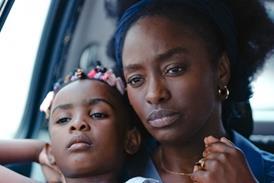




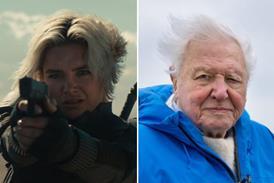
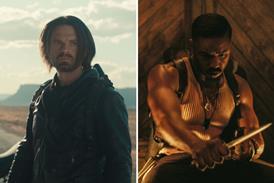
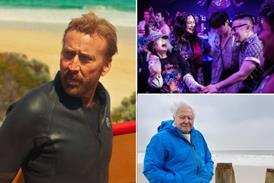










No comments yet